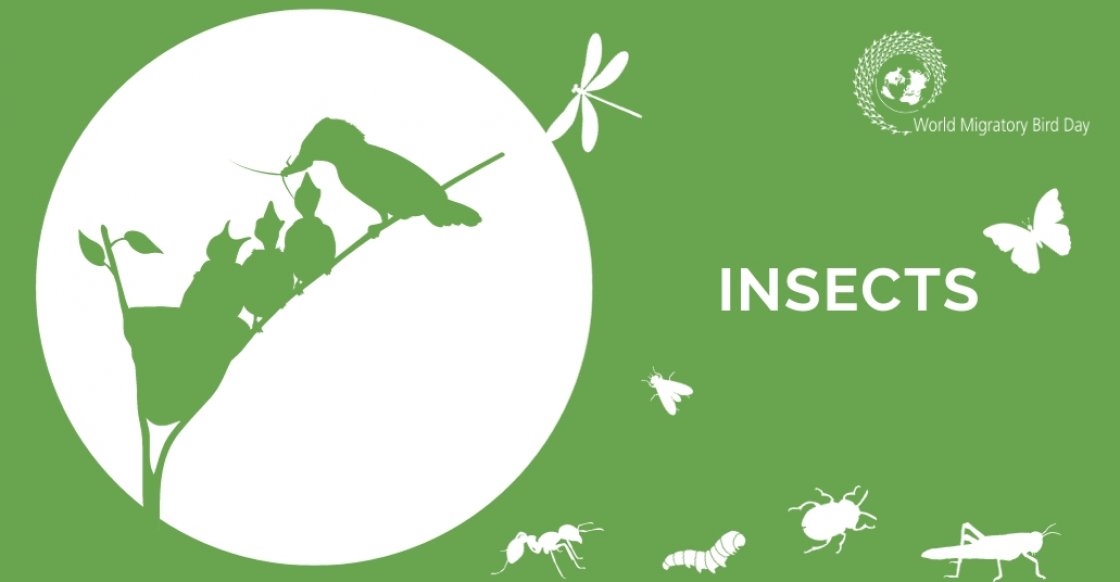You are here
Protect Insects, Protect Birds

Press Release (8 October 2024): English | Français | Español
We are excited to announce that for the first time ever, World Migratory Bird Day focuses on the importance of insects for migratory birds, and highlight concerns related to decreasing populations of insects.
Insects are essential sources of energy for many migratory bird species, not only during the breeding seasons but also during their extensive journeys and greatly affect the timing, duration, and overall success of bird migrations.
Along their migration routes, birds actively seek out insects in fields, forests, wetlands, and various habitats during stopovers. The timing of bird migration often coincides with peak insect abundance at stopover locations, supplying nourishment for birds to replenish their energy reserves before continuing their journeys.
The loss and disturbance of insect populations at breeding sites and along avian migration routes threaten bird survival and well-being. Natural spaces like forests and grasslands that have been transformed or endangered by intensive agriculture and urban development and its effects such as light pollution can result in a decline in insect populations. Pesticides and herbicides designed to protect crops harm insects that birds rely on for food. A scarcity of energy- and protein-rich insects can hinder bird migration and breeding, leading to weakened immune systems, reduced reproductive success, and increased mortality rates for both adult birds and their offspring.

Bee-eater catching a bee © Canva.com
Birds play crucial roles in pollination and pest control, and a lack of insects disrupts these ecosystem functions. Overpopulation of certain insects, without natural predators from birds, can also cause outbreaks that damage plant health and agriculture.
The World Migratory Bird Day campaign in 2024 stresses the need for proactive conservation measures. This includes reducing the use of pesticides and fertilisers, and where possible, switching to organic farming. Other measures include maintaining and connecting areas of natural vegetation which provide food and shelter for birds and other species, in agricultural landscapes.
In 2024, World Migratory Bird Day is being celebrated on two days, 11 May and 12 October, aligning with the cyclic nature of bird migration in different hemispheres.
